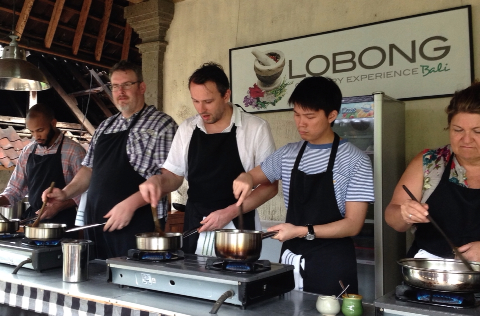
Some people believe that the activities you undertake on the first day of the year dictate your destiny for the year ahead. If this is in any way true, then my year is to be filled with food as I spent New Years Day 2014 at the Lobong Cooking School in Ubud, Bali.
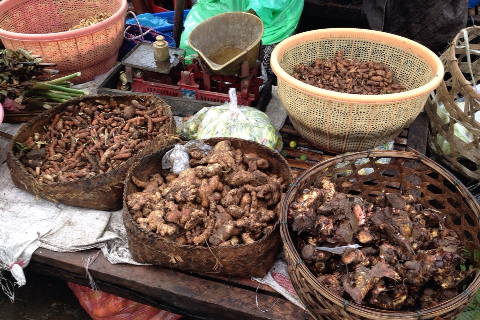
We were collected from our hotel at 8am by Sang De, our guide for the morning, and transported to the small town of Payangan, approximately 15 minutes north of Ubud. The Payangan market caters for locals from the surrounding area and we were the only tourists in sight. By the time we arrived the morning market, which starts at 3am, was in full swing. Sang De escorted our group through the different areas of the market, explaining the various herbs and spices that are used in traditional Balinese cooking.
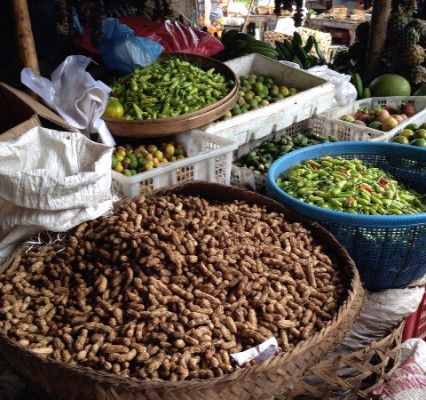
At the conclusion of the market visit we were driven a short distance to the family compound. Sang De described the layout of the traditional Balinese compound, then invited us to partake in morning tea. We were offered a choice of Balinese coffee or ginger tea, accompanied by fresh pisang goreng (fried banana) with palm sugar caramel sauce.
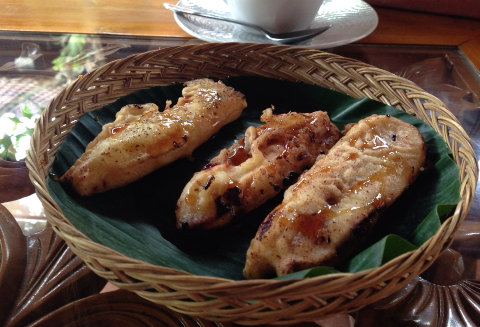
Then it was time to get to work. Chef Dewa was to be our instructor for the day, and as well as being Sang De’s brother comes with previous experience in 5 star restaurants. The majority of Balinese food is based on spice pastes that are subtlety changed according to the flavour profiles required in the final dish. First order of the day was therefore to create the base gede (basic spice paste) which we would be using. No tins or jars here. The class is very much hands on, and the whole group was given the opportunity to dice, slice and finely chop ingredients for all eight of the dishes which we made.
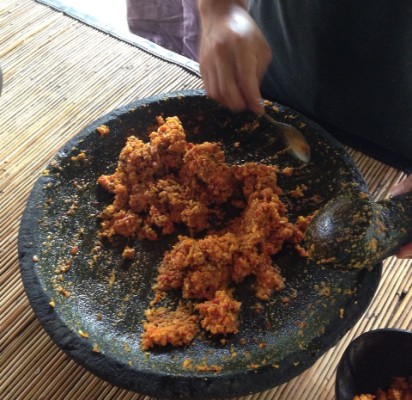
Once the basic spice paste was created and the remainder of the ingredients chopped, the final dishes came together very quickly. Mince chicken soup, chicken curry, chicken satay, tomato sambal and a fern tip vegetable salad, served with sweet potato rice. This was followed by Balinese crepes stuffed with grated coconut and palm sugar.
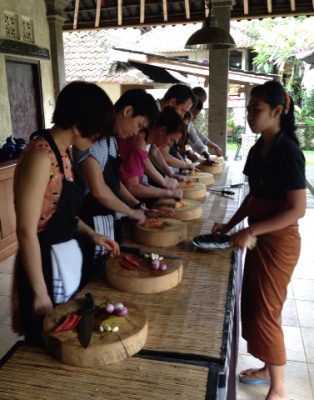
Whilst we were creating the dishes, Chef Dewa demonstrated how to cook rice the traditional Balinese way. The rice is slowly steamed over hot water, then soaked, then steamed again. The whole process takes 1 hour 50 minutes. Not a dish for a quick dinner after work.
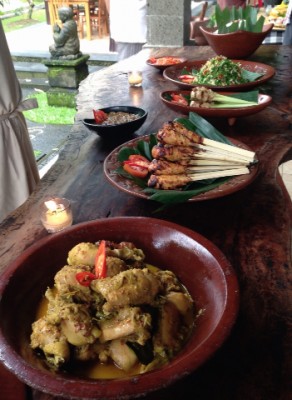
When we had finished preparing lunch, Sang De explained to the group that it was customary to give thanks for the food we were about to consume by making an offering to the gods. With the help of Sang De’s and Dewa’s mother, we donned sarongs and were invited into the family temple to observe the offerings being made.
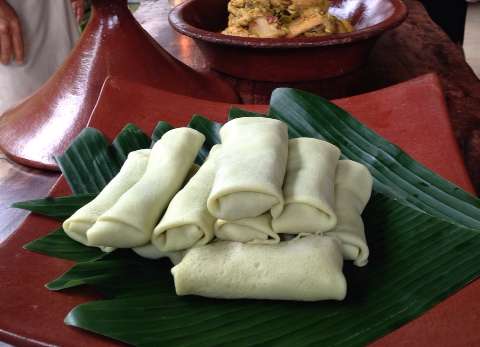
Then to lunch. We were seated at a long table in the garden of the family compound and the fruits of our morning labours were placed in front of us. The meal was beautiful, if I do say so myself.
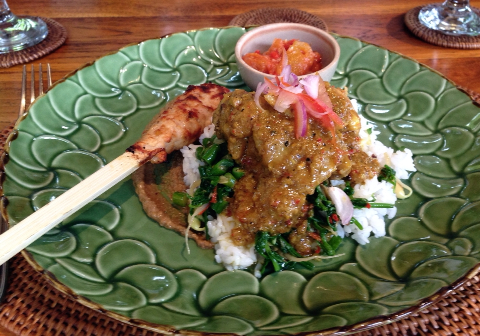
I have participated in many cooking classes, and the Lobong Cooking School is by far one of the best experiences I have had. The school is run in an extremely professional manner. Participants are given every opportunity to be involved in the preparation and cooking of the meal. The insight provided by the family into the food origins and the roles food plays in the life of traditional Balinese families is a point of difference to a standard cooking class.
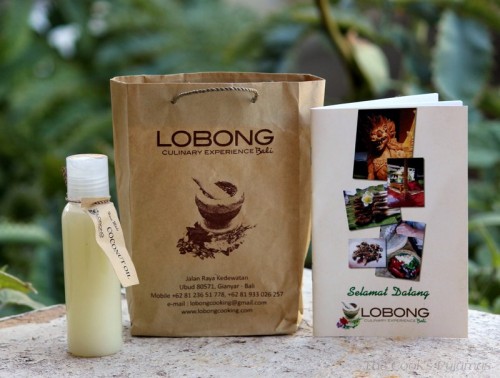
Our parting gift was a recipe book with all the dishes we had made or been served throughout the day, accompanied by a small bottle of homemade coconut oil made by Chef Dewa. If you are in the Ubud area, I urge you to try the experience for yourself. You won’t leave hungry, that I can guarantee.

What a fabulous way to start the new year, lucky you! I love that the class had the local family element to it, how fascinating!
It was a great class. I think that the fact the whole family was involved just meant that they were much more invested in the participants having a good experience, which we did 🙂